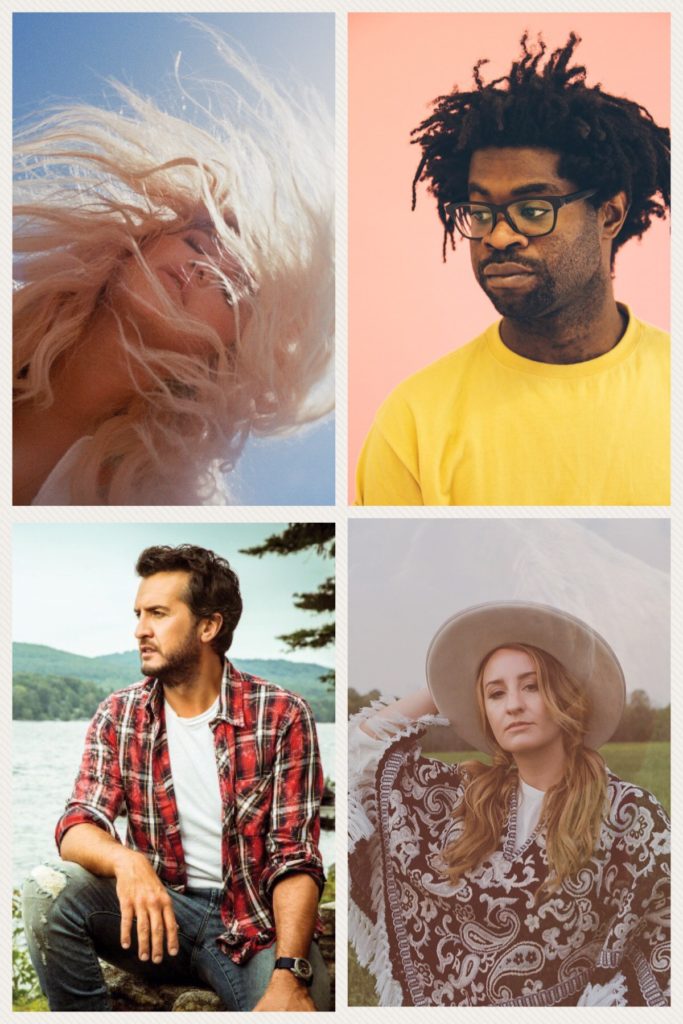
It’s the end of the year and time for critics’ picks, best of lists and top 10s — but we’re going to take a slightly different approach and ask a question: What did Nashville sound like in 2017?
That doesn’t mean a single artist or album, but what was the town talking about — when musicians gathered at the back of bars or industry folks debated over extra long lunches?
Last year, that answer included surprise Grammy nominations and a roots music uprising. This year, to help us find the answers, we invited D. Patrick Rodgers, editor of the
Nashville Scene, and Marissa R. Moss, contributor for
Rolling Stone and
American Songwriter, among others.
Political Activism In The Spotlight
Moss says that country music in 2017 was defined by “who was making noise and who wasn’t” when it came to issues like gun control after the mass shooting at the Route 91 Harvest or racism after the death of a protester at a white nationalist rally in Charlottesville, Virginia, or women’s rights and the #MeToo movement as a spotlight was shone on widespread sexual harassment.
Moss says outsider artists like Margo Price addressed issues directly in their music on songs like “Pay Gap,” which discusses income and other inequalities suffered by women. While more mainstream artists remained, in her words, “dead silent” after the shooting in Las Vegas — pointing out that many were aligned with the NRA’s country music marketing arm — Moss noted that there was one mainstream artist who made a statement about LGBT acceptance that seemed to have been either overlooked or ignored: Luke Bryan’s new album that states, “I believe you love who love/ Ain’t nothing you should ever be ashamed of.”
Kesha’s Bold Album
As editor of the
Nashville Scene, Rodgers oversaw the weeklies’
top 10 list of best albums made by Nashville artists (regardless of genre) and noticed that the majority were women or female-fronted bands like Bully or Daddy Issues.
Many of them continued the conversation sparked by the #MeToo movement, and Rodgers says the artist who may have done the best at dealing with those issues was Kesha. The some-time Music City resident released a record delayed for years by legal wrangling over sexual harassment allegations against her former producer. Rodgers says while the songs don’t directly name names, those who have followed her career know what she’s referencing on tracks like “Praying,” which he calls a song of “redemption and forgiveness.”
Looking Ahead
Rodgers says music by new artist R.LUM.R is representative of a burgeoning Nashville pop scene that is unbound by labels, carving out a niche in city with established scenes in Americana, country, punk, indie and others.
Moss predicts that noted fiddle player-turned-solo artist Joshua Hedley may be able to follow the same path to success laid down by Third Man Records labelmate Margo Price. And, Moss says, many in the industry are hoping Ashley McBryde’s recent signing to Warner Bros. may signal a turning-away from bro country and redneck credential list songs and a move back to storytelling in mainstream country music.
Bonus Tracks
In addition to what was discussed in the radio story (listen above), we also talked about big records from Chris Stapleton and Jason Isbell, as well as issues facing Nashville’s hip-hop scene encapsulated in a
recent interview with artist Mike Floss.
If you want to hear the songs referenced in this story as well others recommended by Moss, Rodgers and WPLN’s Jason Moon Wilkins, here’s a link to a
Nashville 2017 playlist on Spotify.


